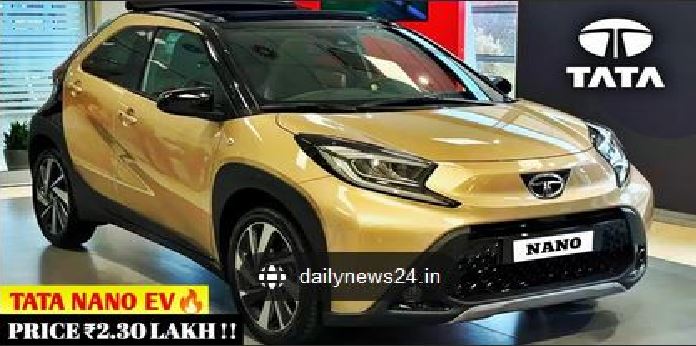It was a rainy day when Ratan Tata’s family was returning home from a trip. As they drove through the wet streets, they noticed a family riding a motorbike, struggling to stay dry under the pouring rain. The bike was worth around one lakh rupees, a significant amount for many families.
This scene sparked an idea in Tata’s mind. Why not create a small, affordable car that could provide shelter and comfort to families like the one they saw on the bike? Tata envisioned a car that would be priced around 2 lakh rupees, making it accessible to the average Indian family.
With this idea in mind, Tata began working on a project to develop a compact car that would fit the budget and needs of many families. After years of hard work, the Tata Nano was born. Although it was a small car, it was an innovative solution for many families who couldn’t afford more expensive vehicles.
However, despite its affordability, the Nano didn’t quite resonate with the market. Despite its affordability, the Nano faced market challenges and didn’t achieve the desired success.
The project faced several challenges, and the car didn’t achieve the success Tata had hoped for. But Tata didn’t let failure discourage him. He knew that setbacks are a part of the innovation process and that perseverance is key.
Undeterred, Ratan began thinking about a new project. He wanted to create a car that would not only be affordable but also environmentally friendly. He envisioned a car that would reduce pollution and make cities cleaner.
This led to the development of an electric vehicle (EV). The EV car would run on a battery, eliminating the need for fossil fuels and reducing emissions. It would be perfect for city riders, providing a convenient and eco-friendly mode of transportation.
One of the best features of the EV car is that it can be charged at home, making it a hassle-free option for daily commutes. With the growing concern about pollution and climate change, the EV car is poised to make a significant impact.
Tata’s goal was not just to create a successful business, but also to contribute to the well-being of society. He believed that by reducing pollution and promoting sustainable transportation, we can create a healthier environment for future generations.
The launch of the new EV car is eagerly awaited by many. Will it be a success? Only time will tell. But one thing is certain: Tata’s commitment to innovation and sustainability will continue to inspire youth, and his efforts will make a positive impact on the world.
The EV car aims to reduce pollution and promote eco-friendly transportation.
Ratan Tata, an Indian industry legend and business icon, died at the age of 86 on 9th October 2024.
As we look to the future, we must remember the importance of embracing new ideas and technologies that can help us build a better world. Tata’s innovation story reminds us that with determination and perseverance, we can overcome challenges and create solutions that benefit humanity.
The story emphasises the importance of innovation, determination, and sustainability in creating solutions that benefit humanity.
Read more and visit
https://dailynews24.in/english/auto/new-tata-nano-ev-2025-price-features-mileage-123392.html







